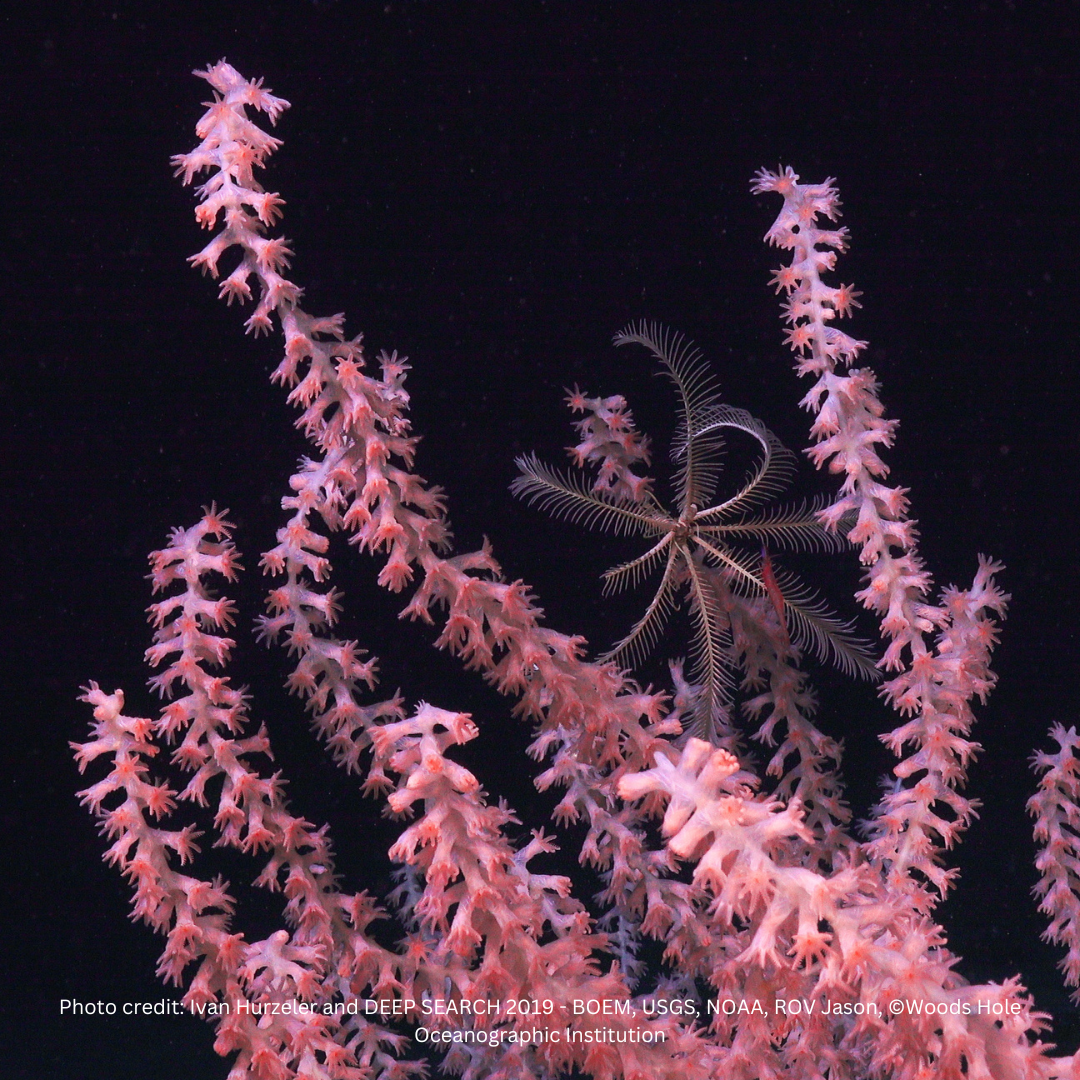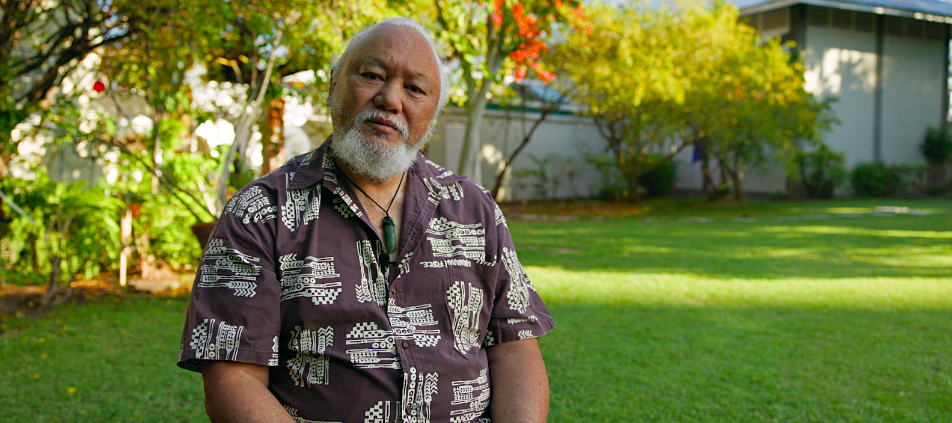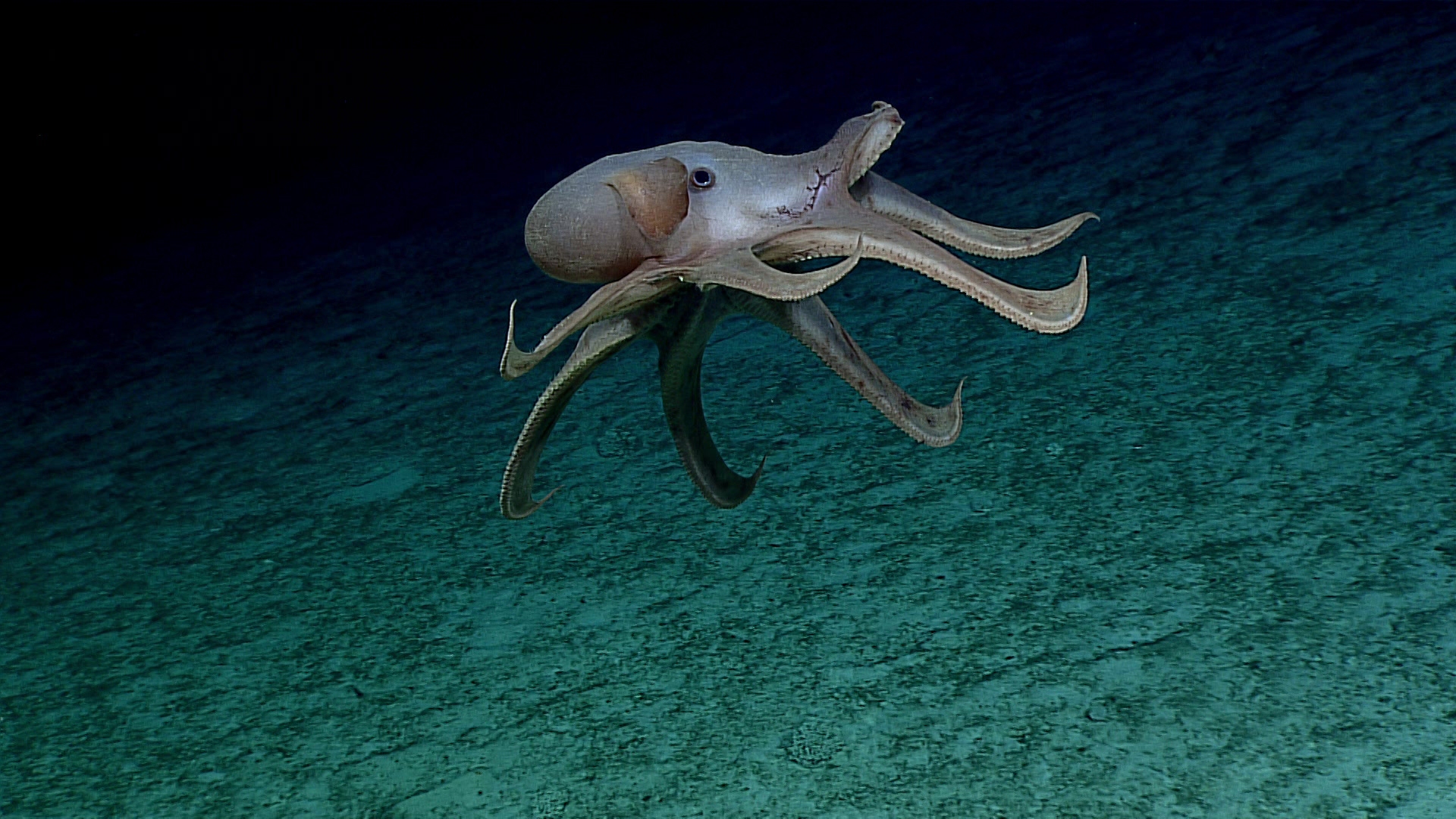Solomon Pili Kahoʻohalahala is a seventh-generation indigenous native Hawaiian descendant, kupaʻāina, from the small Hawaiian island of Lānaʻi. He is the current native Hawaiian Elder of the Papahānaumokuākea Marine National Monument Reserve Advisory Council and Native Hawaiian Cultural Working Group. He is the current Chair of the Hawaiian Islands Humpback Whale National Marine Sanctuary Advisory Council and also serves as a Cultural Community Member of the Pacific Remote Islands Marine National Monument.
In Hawaiʻi, we have an old genealogy, a story, a chant, The Kumulipo. It is our creation story of the deepest source of the darkest seas where the “wali wali”, or the creative slime forms the earth and all creatures. It says the uku koʻa koʻa now emerges as the first coral polyp. In our genealogy it is the first life form to be born, it is our first Kūpuna or our eldest grandparent. It is followed by all other creatures in the near shore waters, over land, taking flight in the skies and the heavens above.
We, the people are ushered into being in a world that is thriving, sustained and in balance from the deepest seas to the highest mountain tops. Therefore, the ocean is our country. There is no division of the seas. The sea is fluid. The animals of the sea don't see a boundary and we don't see a boundary. The deep sea is our sacred place of creation and we have an inherent responsibility to care for and protect all that precedes us on island Earth. If mining companies start using the ocean floor for profit, they do so knowing that they are decimating sacred and cultural connections.
My family have lived on the island of Lāna’i for seven generations, and the threat of what we are facing with deep-sea mining is something I feel compelled to fight on behalf of those who will come after me. I have grave concerns about the proposed deep-sea mining activities that threaten our defining connections to the ocean. The deep sea, in our view, is our home, is where we come from and we are the culture of the people of the deep sea. It is our country, it is our home.
Our ancestors have lived in harmony with the ocean for thousands of years, respecting its power and abundance while recognizing our place within it. We have developed a deep spiritual connection to the ocean, and it is an integral part of our daily lives. It is the source of our food, our recreation, and our cultural practices.
Now, however, we face a new threat to this sacred connection in the form of deep sea mining. This is a destructive and dangerous practice that risks irreparable harm to the ocean and the creatures that call it home. To imagine that someone would come into that realm and then begin to disrupt this sacred place with huge machinery, destroying it and tearing it apart is just something that must not happen. Deep-sea mining involves extracting minerals and metals from the seafloor, which can damage fragile ecosystems and disrupt the natural balance of the ocean.

“The Kumulipo, a Hawaiian creation story, tells of the union between Kumulipo, the first male, and Pōele, the first female and a coral polyp from which the first creature on earth was born - emerging from the deep sea to inhabit the shorelines where Indigenous Hawaiians live to this day.”
Solomon Pili Kahoʻohalahala
We may not know all of the life that inhabits the ocean, but we do know that the process of mining will generate large amounts of waste and sediment that will travel untold distances, which will harm marine life and pollute the ocean. This sediment can travel great distances and affect ecosystems far beyond the mining site.
The potential for accidents and spills during deep sea mining is very real, and the consequences could be catastrophic. We have seen the devastating effects of oil spills on our coastlines and our marine life, and we cannot afford to risk similar disasters in the deep sea.
In these conversations on mining, there's no consideration that we come from this space. It's about minerals, it's about resources, it's about extraction, with no regard for culture.
This culture of ours is based on our intimate relationship with the ocean, and any harm done to the ocean is a direct attack on our way of life. Our ancestors understood this connection and respected the ocean as a living entity, not a resource to be exploited for profit. We must respect them in turn.
We believe that the ocean is not something we own, but rather a gift that we are entrusted to care for and protect for future generations. This is the foundation of our indigenous knowledge, and it is a responsibility that we take very seriously.
To the miners I say that there is a culture of the deep seas. And that is why I want to be a voice of our ancestors. I want to be the one that says: we come from this place. This is our home, and you are now intruding upon it. And you have asked no permission.
Deep-sea mining is a dangerous and destructive practice that threatens the ocean we depend upon. We cannot allow this to happen. I call on all those who share my love and respect for the ocean to join this fight against the mining companies. We must work together. Stand up for the ocean, stand up for the earth and stand up for all things that are going to help to bring balance back.
Hanau ka po
The night gave birth
Hanau Kumulipo i ka po, he kane
Born was Kumulipo in the night, a male
Hanau Poʻele i ka po, he wahine
Born was Poʻele in the night, a female
Hanau ka ʻUku koʻakoʻa, hanau kana, he ʻAkoʻakoʻa, puka
Born was the coral polyp, born was the coral, came forth.
SIGN UP FOR OUR EMAILS AND STAY UP TO DATE WITH EJF

